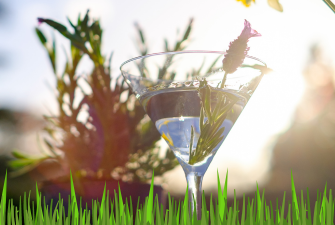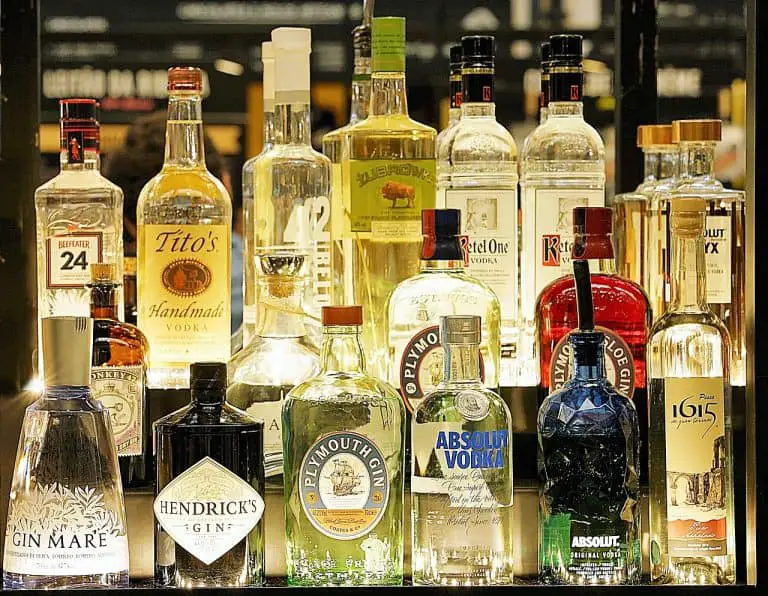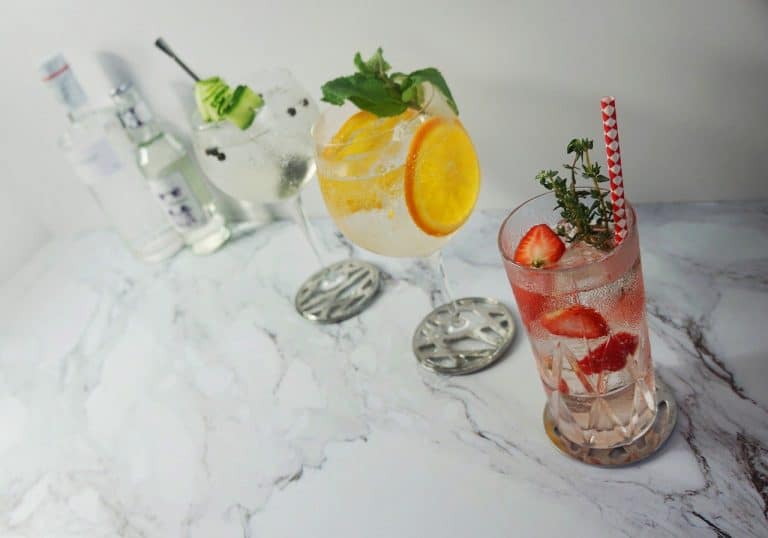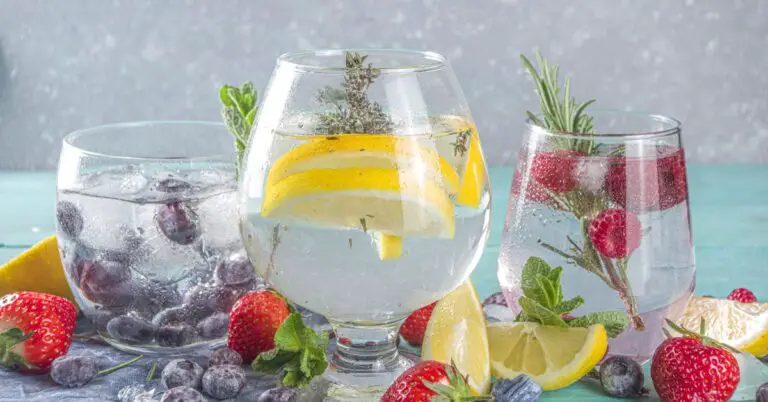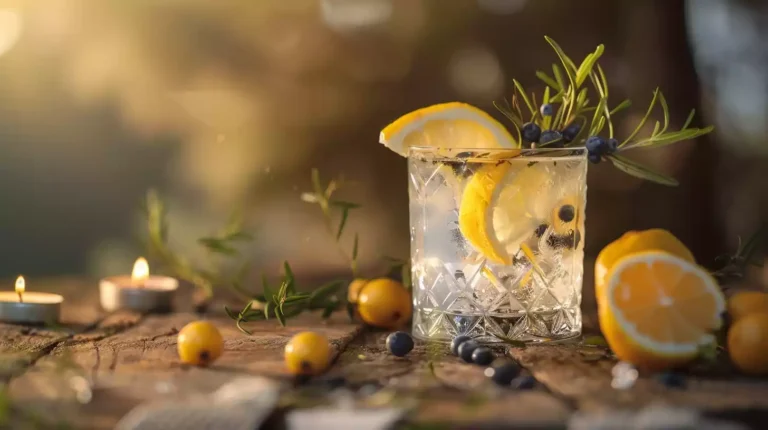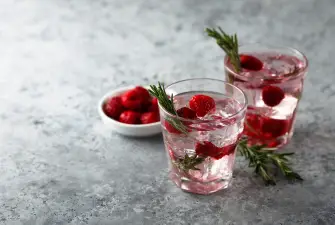Does Gin Have To Be Refrigerated
Cocktail recipes that require gin almost always tell you to serve your gin really cold. And this is for a good reason! So does this mean you have to have gin refrigerated at all times?
Gin is not required to be refrigerated. Gin won’t expire due to its high Alcohol by Volume (ABV) of at least 37.5%. As long as you don’t expose gin to intense heat or sunlight, you don’t have to worry about your drink going bad over time. It is preferred to store and drink your gin cold, though.
Even though gin won’t really go bad over time, you’ll still want to consider storing your gin in the freezer or a fridge. Gin won’t expire if it’s not stored in a fridge, but there are some factors that can alter the taste of your drink if it’s not stored correctly.
Should You Refrigerate Gin
As we stated above, gin won’t ever really go bad if it’s just stored somewhere in your house. Gin, like pretty much all spirits has a relatively high ABV, which in the case of gin is at least 37.5%.
A good example to prove that spirits with a high ABV don’t expire is whiskey. Whiskey won’t ever really go bad, in fact, whiskey even gets better with age. Unlike whiskey, gin won’t get better with age.
But due to the high ABV of gin, the spirit is uninhabitable for things like bacteria or fungi which are normally the cause of spoiling food and drinks.
Because of this, your gin can’t go bad over time, even if it’s not stored in a refrigerator.
Storing your gin in a cold and refrigerated place is the best way to go. Besides tasting much better when served cold, the liquid itself will be preserved better as well, ensuring that there is little to no change in taste.
Even though your gin won’t expire outside of a fridge, the flavors in the spirit can be altered over time if not stored correctly.
Basically, there are four factors that are able to alter the flavors in gin (or any other spirit). These four factors are heat, sunlight, oxidation, and evaporation.
Factors That Can Alter Your Gin
Gin is quite a sensitive drink so to speak. Gin gets its flavor from botanicals. These botanicals range from juniper berries, which are mandatory in a gin to things such as blood orange, cinnamon, and many more.
These botanicals, however, are quite frail and when mishandled, they can become dull and even tasteless.
This is also the reason why you wouldn’t want to shake your gins, as shaking would be too rough of a mixing technique. You can read all about shaking versus stirring gin in this article!
The Influence Of Heat On Gin
Let’s start with heat. Heat can do harm to the flavors in gin in multiple ways.
The first one is that too much heat can alter the botanicals that are responsible for the flavors inside a gin. When these botanicals are altered, the drink will most likely not taste as it did before.
Gin gets its flavor from botanicals that are infused during the distillery. Without these botanicals, gin would just be a (mostly tasteless) neutral grain spirit like vodka.
The thing that sets vodka and gin apart is the fact that gin has to be infused with natural products (botanicals), with the main ingredient being a juniper berry.
Gin distillers can add pretty much any other botanical they like to the gin to really make it their own and to make their gin stand out from other gins. To learn more about different botanicals gin distillers use, read our helpful guide.
As we said before, too much heat can alter the chemicals inside a spirit. This means that the chemicals from different botanicals have changed from how they were intended in that gin.
This alteration happens because the botanicals in gin can be quite fragile.
Gin is comprised of top, middle, and base notes. The botanicals make up the top notes and are also the weakest. This means that environmental factors like heat affect the botanicals first.
Therefore the gin won’t taste how it was meant to be and your experience with the gin will probably not be as good as it could have been.
How Heat Can Cause An Evaporation Process
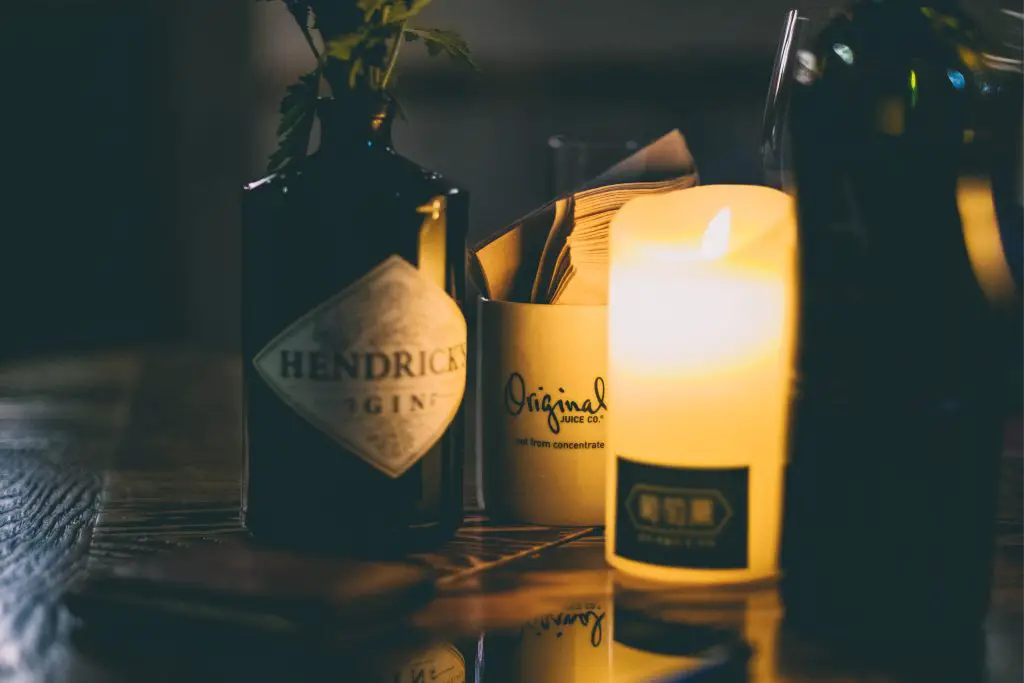
The second way too much heat can alter your gin is by evaporating the liquid inside the bottle. We’ve got a whole article describing if gin can evaporate right, but we’ll give a short summary of what we explain in that article.
Gin can indeed evaporate over time. Too much heat can cause the water and/or alcohol inside a bottle to evaporate. Normally more alcohol will evaporate than water because alcohol has a lower boiling point compared to water, but both can happen at the same time.
You may not expect it, but this evaporation can already happen at room temperature. However, the lower the temperature, the lower you get to the freezing point of water and alcohol, and the slower the process of evaporation happens.
Evaporation happens in both opened and unopened bottles of gin. Only if a bottle is 100% airtight, evaporation will almost never happen, because the evaporated liquids can’t escape the bottle.
Most bottles aren’t exactly 100% airtight though so even in unopened bottles the liquid could (very slowly) evaporate over time.
Opened bottles of gin evaporate much quicker due to the fact that it is almost impossible to close a bottle airtight again after it has been opened.
If some of the alcohol and/or water has evaporated out of the bottle, the proportions of the liquids are not the same anymore. This means that the taste of your gin will also be different.
Because alcohol evaporates faster, the ABV of the drink will have gone down over time. This results in the fact that the taste will probably be a lot less sharp and it will taste weaker than it did before.
Like heat, evaporation also targets the botanicals quickly. When a part of your gin has started to evaporate, the top notes are the first to go. This results in a duller and much less complex taste of your drink.
The Influence Of Sunlight On Your Gin
Sunlight is also a big culprit of flavor alteration in gin. Too much direct sunlight can alter the chemicals of the different botanicals in gin just like heat does.
So even if you store your bottle in a cold spot, if that spot is next to a window with sunlight, the top notes could still be altered.
Sunlight carries a lot of energy with it in the form of UV radiation. We all know UV radiation because of how it can affect your skin, but we sometimes forget that it can also have the same kind of effect on food and drinks.
The energy of the UV radiation from the sun can interact with the chemicals in your gin, causing them to break, form bonds with each other, or just change.
Just like with what heat does to gin, the damaged molecules mean that the flavors in the spirit won’t be as they were intended by the gin distiller.
You want to avoid changing the gin’s flavors, of course, as the distillers are creating fantastic flavors already.
The Oxidation Process That Happens In Your Gin
The last factor that could have an impact on the taste of your gin is a process called oxidation. Oxidation is a process that occurs when alcohol comes into contact with oxygen.
During oxidation, alcohol molecules interact with oxygen molecules (and water), which causes the structure of the molecules to change. This results in less alcohol inside the drink, which means that the drink will have a lower ABV.
As we explained above, a lower ABV means a duller and weaker tasting gin, which is far from ideal.
As you may imagine, the more oxygen available inside a bottle of gin, the more oxygen molecules are able to react with alcohol molecules. Therefore, not a lot of oxidation happens in an unopened bottle.
There’s a tiny bit of oxygen in unopened bottles, which could react with the alcohol over time, but this small amount won’t have a big impact, if any, on the taste of the whole drink.
Once you’ve opened a bottle of gin though, more oxygen molecules are able to get in the bottle to react with the alcohol.
On top of that, once you close the bottle to store it again, the fresh oxygen in the bottle has time to interact and oxidize the rest of the drink. Because of this, it is best to finish a bottle of gin somewhat quickly after opening it.
Generally speaking, a bottle of gin is the best if it’s finished within a year of opening.
To summarize, even though gin can’t expire over time, there are quite a lot of things to keep in mind when storing a bottle of your favorite gin.
Too much heat and sunlight, as well as chemical processes like evaporation and oxidation, can have a big impact on the taste of gin. You might be wondering how you can correctly store a bottle of gin to preserve its taste the best.
In this next part, we’ll explain how to store your gin, so that the flavors are always at their best.
Final Thoughts
While some people do prefer to refrigerate their gin, it is not necessary, but it is often recommended that you store it in a cold environment. This will ensure that the herbs and botanicals used in gin remain fresh and potent.

